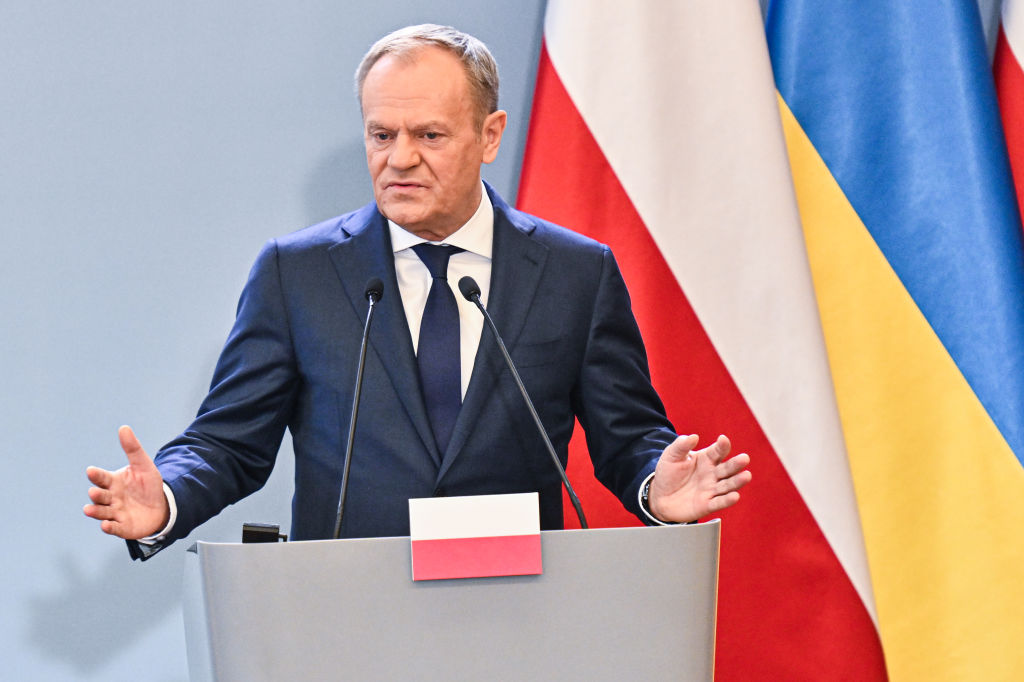Poland has announced details of a €2.5 billion plan to fortify its Eastern border to prevent and deter potential Russian and Belarusian aggression.
Polish officials admit they are also considering a move to mine the borders, which would require Poland to leave the 1997 Ottawa Convention banning the use of such munitions.
The project to fortify the border with Belarus and Russia will include new infrastructure such as bunkers and anti-tank obstacles, as well as electronic elements such as satellite monitoring, thermal imaging cameras and anti-drone systems.
The announced programme has been officially titled “Eastern Shield” but has been nicknamed by many the “Tusk Line”.
Speaking at a press conference on May 27, Polish defence minister Władysław Kosiniak-Kamysz claimed the 700km project represented a major change in Poland’s approach to its Eastern border.
“The Eastern Shield deterrence and defence plan is the largest operation to strengthen the Eastern border of Poland, the Eastern flank of NATO, since 1945,” he said.
Kosiniak-Kamysz said the main goals of the plan are to strengthen capabilities against any surprise attack, to impede the movement of enemy troops in a conflict, to facilitate the movement of Poland’s own forces and to protect the civilian population.
He also revealed that the Government was hoping to secure European Union funds for the planned measures.
The defence minister called for Polish political unity regarding the project but criticised the existing Belarus border defences, built by the previous Conservative (PiS) government in reaction to the migrant crisis in 2021, as being “leaky in some places”,
This political aspect raised by the Government of Prime Minister Donald Tusk has irritated the opposition PiS. It reminded voters how Tusk’s party had ridiculed the construction of the original border barrier and had argued for more humanitarian treatment of migrants attempting illegal border crossings. The PiS contrasted that with the Government’s acceptance that the illegal-migration wave from the East was part of a hybrid warfare campaign probably orchestrated by Russia.
Perhaps in a bid to placate the PiS, Kosiniak-Kamysz said that Poland would consider renouncing the Ottawa Convention but he insisted that “the laying of minefields will only take place when we are sure that war is inevitable”.
The PiS has previously called for Poland to leave the Ottawa Treaty, with former Polish prime minister Mateusz Morawiecki arguing that “the war in Ukraine has shown the importance of landmines in slowing down military advances” and that “mines are a cost-effective weapon which Poland can produce itself”.
Morawiecki, speaking during a recent visit to the Polish-Belarusian border, pointed out it was “the PiS government which had fortified the border and that it was now time to take the next step and make the Eastern border even stronger by leaving a treaty which hampers the country’s ability to instal stronger border defences”.
The Ottawa Convention on landmines has not been ratified by countries including Russia, China, the US and Israel but has been by EU Member States and the UK.





